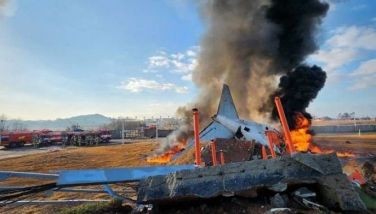Political skills above language for EU's Tusk
WARSAW — Donald Tusk's English is shaky, his French nonexistent, and his nation — Poland — has only sat at the EU table since 2004.
No matter. European Union leaders instead focused on his talents — a rare political acumen and a pro-European bent — before unanimously naming the Polish prime minister to one of the bloc's top leadership posts.
Tusk's selection as European Council president came after he successfully led his country through the economic turbulence of the European debt crisis that devastated much of the continent. It was also a nod to Eastern Europe's growing clout within the 28-nation EU, which Poland joined 10 years ago after emerging from under Moscow's control.
The media-friendly Tusk, 57, is the longest-serving prime minister in Poland's 25 years of democracy. His seven years in office have given Poland's politics, economy and residents an undisturbed sense of stability. His perfect reading of social moods allowed him to address the needs of Poles even during the debt crisis and while still trying to develop his nation's fledging market economy.
During the financial crisis, Tusk's reassurances that the Polish economy had a healthy foundation and his government's guarantees for saving accounts prevented bank runs. On the maps that he frequently showed, Poland was the sole green-colored island of economic growth against the red sea of Europe's regressing economies.
Poland is a rare EU-enthusiast, encouraging members to see the benefits of being in the world's largest trading and visa-free travel bloc. Tusk (pronounced toosk) is expected to bring that energy into the group's top levels.
German Chancellor Angela Merkel said Poland and Tusk have "made a great contribution to overcoming the division of Europe."
His new job — hailed in Poland as a great national honor and a personal success for Tusk — comes at a time of major challenges facing the EU: Europe's stagnating economy and its troubled euro, the calls for deep reforms by voters and the armed conflicts close to the EU's borders, chiefly the war in Ukraine and Russia's role in it.
Tusk's friendly manner and long experience in the Council surely helped his selection to the sensitive job of EU summit chairman and behind-the-scenes broker of compromises among national leaders who often favor national interests.
"The European Union was looking for someone for bad weather, someone who successfully led his country through crisis, because today the EU has internal and external tensions," said European lawmaker Janusz Lewandowski.
Poland, which long was under Moscow's shadow, is extremely sensitive to the situation in Ukraine but at the same time Tusk, a historian and a former activist of the Solidarity freedom movement, is not anti-Russian. While friendly with Ukraine, he has tried —though in vain — to bring Warsaw and Moscow closer together.
"(Tusk's appointment) is a sign for Ukrainians that the EU is with them. It is also a sign for Russia that the EU is committed to protecting Ukraine," the US ambassador to Poland, Stephen Mull, said.
A skilled and determined politician, Tusk has run the senior ruling coalition Civic Platform party with an iron hand, eliminating competition. With equal determination he has repeatedly saved his government from scandals — playing the problem down and replacing a minor minister or two.
His image did suffer when he pushed through unpopular but economically sound reforms such as raising the retirement age. To preserve support, this time Tusk sacrificed the finance minister.
On the personal side, Tusk likes jogging and playing soccer and roots for the British soccer team Arsenal. He has two adult children, a daughter and a son.
And despite Tusk's reputation for being tough, his wife, Malgorzata Tusk, revealed in a TVN24 interview last year that he tears up while watching movies like "The Lion King."
- Latest
- Trending






























